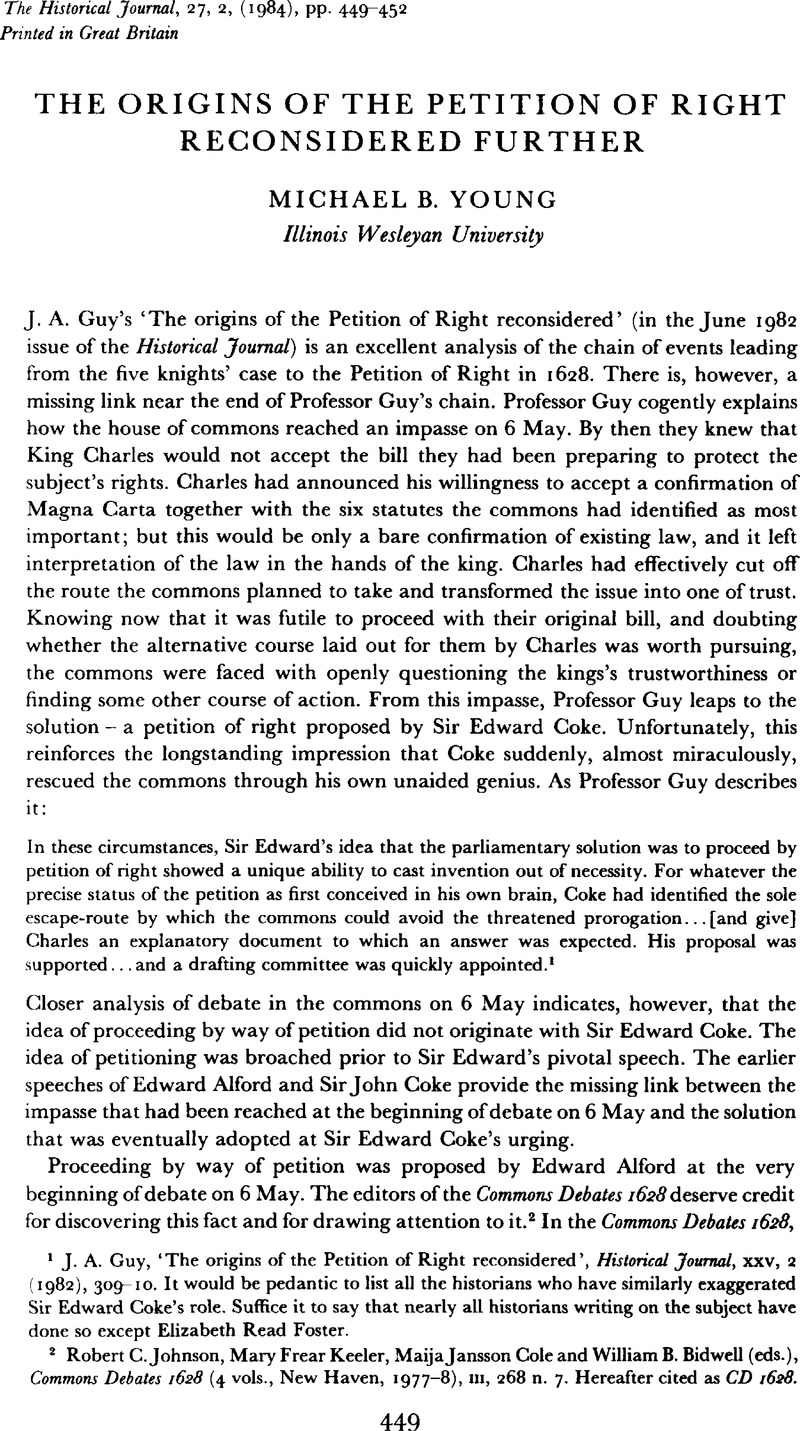Article contents
The Origins of the Petition of Right Reconsidered Further
Published online by Cambridge University Press: 11 February 2009
Abstract

- Type
- Communications
- Information
- Copyright
- Copyright © Cambridge University Press 1984
References
1 Guy, J. A., ‘The origins of the Petition of Right reconsidered’, Historical Journal, xxv, 2 (1982), 309–10Google Scholar. It would be pedantic to list all the historians who have similarly exaggerated Sir Edward Coke's role. Suffice it to say that nearly all historians writing on the subject have done so except Elizabeth Read Foster.
2 Johnson, Robert C., Keeler, Mary Frear, Cole, Maija Jansson and Bidwell, William B. (eds.), Commons Debates 1628 (4 vols., New Haven, 1977–1978), III, 268 n. 7Google Scholar. Hereafter cited as CD 1628.
3 CD 1628, III, 285.
4 CD 1628, III, 279. See also especially in, 291.
5 CD 1628, III, 294. See also III, 274: ‘all to be made inducements to our gift’.
6 CD 1628, III, 269.
7 CD 1628, III, 269, 280, 295.
8 CD 1628, III, 269–71, 275–7, 280–2.
9 CD 1628, III, 269. See also III, 280, 295.
10 CD 1628, III, 271. Italics mine.
11 CD 1628, III, 277. Italics mine.
12 CD 1628, III, 282. Italics mine. S. R. Gardiner glimpsed the significance of Secretary Coke's speech more than subsequent writers. Gardiner, wrote, ‘The Secretary little thought what echo his words would have.’ History of England from the accession of James I to the outbreak of the Civil War (10 vols., London, 1883–1884), VI, 273Google Scholar. Compare this, for example, with White, Stephen D., Sir Edward Coke and the grievances of the commonwealth, 1621–1628 (Chapel Hill, 1979), p. 261Google Scholar.
13 CD 1628, III, 271–2, 277, 282–3.
14 Petitions and the Petition of Right', Journal of British Studies, xiv, 1 (1974), 21–45Google Scholar.
15 CD 1628, III, 102.
- 5
- Cited by


